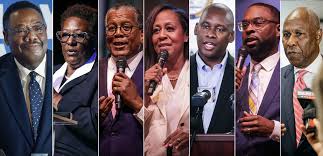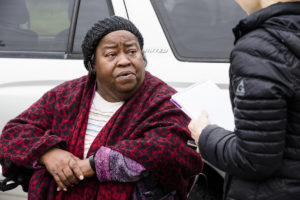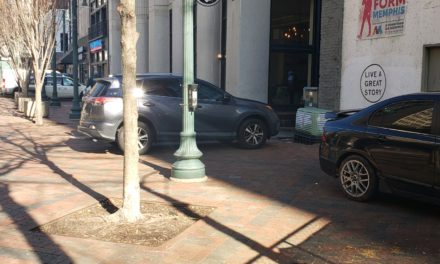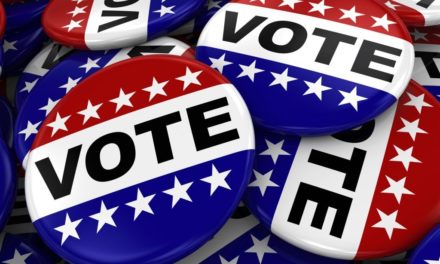The Sturm and Drang associated with a mayoral campaign with 17 candidates mercifully comes to a close in one final day of voting this week, and with election day comes the revelation of who will take office after receiving a fraction of the overall vote.
And that turmoil’s not even taking into account the 44 people running for City Council in races that largely took place in the shadows with so little help from the news media that they were virtually invisible. It was unfortunate because there are some races with sharp personality and policy differences and voters deserved more from local journalism. Only a few candidates had enough campaign money to buy television commercials and as a result, the emphasis on Council races has largely been on retail politics.
Meanwhile, media coverage in the mayor’s race gravitated to candidates with the largest campaign war chests and supposedly the most favorable polling. As a result, coverage centered on Floyd Bonner, J.W. Gibson, Willie W. Herenton, Van Turner, and Paul Young. As a result, other candidates were essentially denied the oxygen to mount any momentum, especially Michelle McKissack and Karen Camper.
Throughout much of the campaign, responses from mayoral candidates were more platitudes than policy, and often, the responses by candidates were seemingly interchangeable. At a point late in the election season, Mr. Young and Mr. Bonner seemed to be playing not to lose rather than playing to win, and that might be because Mr. Young’s multiple votes for Republicans and the dozens of deaths in the Shelby County Jail managed by Mr. Bonner were having an impact.
The State of Play
At the same time, Mr. Turner’s “Blue Wave” strategy, powered by an infusion of serious money from Tennessee Rep. Justin Pearson, appeared to be producing new positive movement for his candidacy. It was accompanied by Mr. Turner’s thoughtful answers on the debate stage which veered to the specific while others continued to deliver generic talking points.
The question is whether Mr. Turner has made up enough ground or whether in the end, he could have used a couple of more weeks to pull off a victory. At the same time, it’s beginning to seem possible that Mr. Bonner and Mr. Young peaked early and the question for them is whether the calendar can expire along with their best chances.
Another question is whether the stealth campaign by Mr. Herenton, formerly Memphis’ longest-serving mayor, will pay off or whether interest in him waned as the campaign season continued. As for Mr. Gibson, it feels that his campaign couldn’t develop any traction although he mounted some devastating attacks against Mr. Young who he apparently saw as the front runner.
All this becomes old news and outdated prognostications Friday when we learn the final election results. In time, the winner will name the obligatory transition committee, which will be appointed although recommendations from them in new administration after new administration have produced negligible impact.
In addition, most candidates are thinking about a short list of people he wants to get involved in his administration. The mayor has more than 100 appointed positions where the campaign faithful can be placed but the plum appointments are the mayor’s staff, CAO or COO (depending on what the next mayor wants to call this position), city attorney, and division directors.
Crime, Crime, Crime
Mr. Young has labored under suspicions that his administration would be “Strickland lite” while other candidates’ election has been said to run the risk of disrupting continuity – although hopefully, whoever is elected sees the need for disruptive innovation.
An immediate pressing priority for the new mayor is to establish a productive working relationship with the new Council. Some Council candidates’ rhetoric has confused the roles and responsibilities between legislative and executive branches, so if elected, the shake out period could be about clarifying this without either aggravating the new relationship or giving away authority to foster better relations.
Back to the hope that the next mayor will be a disruptor, there is plenty of changes that are needed to drive cultural change and improve Memphis’ trajectory; however, it is likely that the early performance will be judged by his administration’s impact on crime. After all, when he takes the oath of office on January 1, 2024, it is likely that 2023 will have had the most violent crime in Memphis history, leading to even greater outcry that the mayor must do something to improve things.
Our community has been adept at doing the same thing with the same people to fight crime and expecting different results. After all, Memphians have increased the police department budget and hired more police but more money is clearly not the answer. What’s missing is additional intellectual capital, which is why the next mayor, immediately following his election, should visit a few cities whose innovative programs have in fact reduced gun crimes and violent crimes.
New Mayor’s To-Do List
Another crime-related challenge is that it threatens to consume so much attention and resources at a time when there is so much more to do:
- The new mayor should break tradition and get deeply involved in national conversations, whether at United States Conference of Mayors, at conferences on urban issues by philanthropies, and at meetings of national organizations researching and exploring cutting edge questions facing Memphis. This exchange of information can be pivotal to new answers that can’t be found in the city’s insular problem-solving tendencies.
- The new mayor should revamp the budget process to involve more public input and to post it online in a timely manner (this year’s budget has still not been posted as well as some previous years. The mayor should also adopt a police that all city reports and studies will automatically be posted online.
- The mayor should promise that he will not maintain a list of people who will be forbidden from entering City Hall or meeting with him.
- The mayor should force MLGW to issue an honest RFP seeking proposals for electricity suppliers for Memphis (the current mayor’s own consultant said that the previous RFP was badly flawed).
- The mayor should move to implement the city’s own climate change recommendations which have been largely ignored and the mayor should transform Memphis 3.0 into a driver of change and reinvestment in the city’s neglected neighborhoods.
- The mayor should set goals that become the foundation for a serious evaluation of the PILOT programs to determine if the $75 million in taxes that are waived every year are wise investments and are necessary. He should also order audits of the PILOT programs to ensure how the money is being spent and if contracts are being followed, including the millions of dollars the Defense Depot Redevelopment Authority spent on uses outside of the adjacent neighborhoods.
- The mayor should consider policies (such as ones enacted in other cities) to reduce the number of houses being purchased by Wall Street investment firms and turned into rental units that often become blighted properties. Of the 50 largest cities, Memphis had the largest percentage of houses – 20% – sold last year by these firms.
- The mayor should provide adequate funding for the Memphis Housing Fund and should provide direct city government funding for HCD rather than just developing a program based on how much federal money the city receives.
More Ideas
- The mayor should order a complete audit of all city boards and commissioner to determine how long every member has been serving and establish a process that allows the public greater access to appointments and ensure diverse representation.
- The mayor should bring in new thinkers and disruptive innovators to city divisions and develop a plan to change the culture of city government to reward innovative performance. Multiple mayors have tried but they have never developed a specific plan to break bureaucratic behaviors and develop a more entrepreneurial government.
- The mayor should set a new media policy that promises responsive answers to media questions and promises that all reporters will be treated fairly and equally.
- The mayor should pursue a plan that provides the public with a public transit system comparable to other cities our size. This might require a tax increase for MATA but it’s worth keeping in mind that the city tax rate is at a 50-year low.
- The mayor should develop an accurate matrix of incentives that is more than tax breaks, but takes into considered the lower rate for electricity and water large users receive and that businesses here have a much lower cost of living.
- The mayor should consider a policy that states that if a tax break provides more than 20% of a project’s cost, the public should have an equity position in it.
- The mayor’s directors in engineering and public works should be committed to a city that is less car-centric and more walkable and bikable.
- The mayor should instruct economic development officials that their #1 opportunity is to close the racial income gap. It would produce an economic impact four times larger than the new Ford plant. Memphis should have a brand and a plan to be a center of African American talent.
These recommendations are but a few ideas that offer the kinds of opportunities that can set apart the next mayor. Every mayor wants to be a great mayor. Memphis hasn’t had one yet, but there’s no better time for one than right now.
***
Join us at the Smart City Memphis Facebook page and on Instagram for daily articles, reports, and commentaries that are relevant to Memphis.







Obviously, the mayor can’t do all you suggest immediately, so where to start. Give us a column of your preferences for beginning.
Also what cities with innovative programs would you suggest. Last, can you do a review every 6 months on your suggestions.
It’s really great to read specific actions, rather than the pablum the campaigns give us.